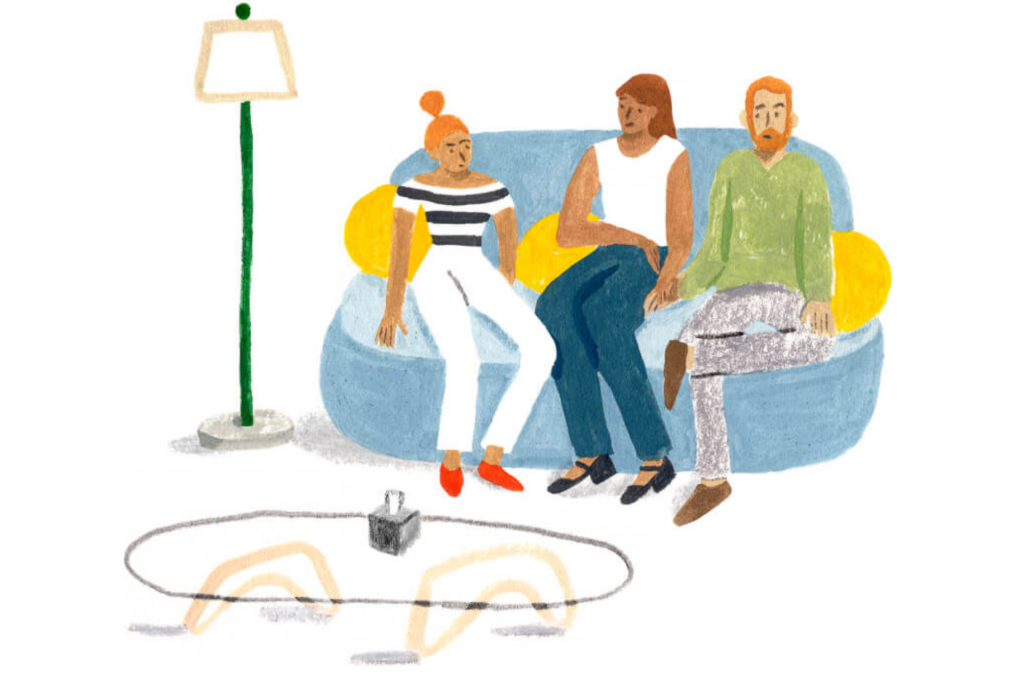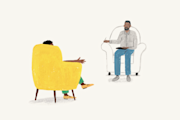When my friend—let’s call him James—first told me he and his girlfriend of five months were going to couples counseling, I balked. “If things are so bad that you need to be in therapy, why not just break up?” I asked him, “You haven’t even been together a year, it’s not like you have a marriage to save.”
“Well, that’s the thing,” James said, “They’re not that bad. They’re not bad at all. And we want to keep it that way. But we also know that, even if we don’t want to, we both have stuff we’re bringing from previous relationships, and we know we don’t agree on everything. It’s gonna help to have a person to guide us through those clashes.”
My conversation with James was a couple of years ago. He and his then-girlfriend are happily married now, and expecting a child. (Really.)
And as for me, my eyes were opened. I was brought up and continue to live in the privileged position of seeing therapy as not only acceptable, but commendable. (Hell, I wrote a blog post for this very site about there being no wrong reason to go to therapy.) And even still, I’d evidently harbored the idea that some reasons for going to therapy aren’t...correct.
Hold that idea under a magnifying glass for half a second and it’s obviously ridiculous—we don’t only go to the doctor when we’re having a medical emergency; checking in with one’s doctor is an important part of maintaining health.
If we judge whether a person needs—or worse, “deserves”—therapy based on how “bad” their situation is, we could discourage people from getting the help they need before things get bad.
Although the “tipping point” that makes a person finally actively seek help is different for each of us, for many people, it comes at a time of great stress or pain. In some of these cases, that hurt could have been avoided if they had sought help earlier. If a person is interested in therapy, or wants to address something in their life, that’s enough.
We asked nine different people with nine different backgrounds what the tipping point was that made them move from simply considering therapy to actually seeking help. While some were facing specific stressors, others realized it was the right time to try therapy for less acute, or mixed, reasons.
(Names have been changed; answers have been edited for length and clarity.)
“Hannah,” 33:
Teletherapy really opened up so much.
I realized some of my patterns, behaviors, and needs were becoming slightly destructive in my life. I was suffering panic attacks, lacking clarity/direction in my life, and my mood swings were exhausting. At this time I tried a therapist, but it was 1. very expensive, 2. logistically difficult (leaving work once a week for therapy was just not doable long term), and 3. after a few sessions I realized we just weren't clicking.
I didn't have the energy to keep looking for the perfect fit—it's like a job search or dating but without a clearly defined outcome. It was just too much to tackle and actually made some of my anxiety worse.
During COVID, though, my company partnered with a teletherapy group and I was able to find a therapist through my insurance. I was also able to pay it with my HSA so it didn't feel detrimental to my monthly budget.
Teletherapy really opened up so much because I can be so much more flexible with my schedule, and the intimacy is there but the virtual nature really gives me a healthy boundary on the relationship that I like and thrive in. I now go to therapy regularly (twice a month, sometimes more or less based on need) and it has helped enormously.

“Ethan,” 35:
We realized that we’re at an age where this difference needed to be addressed immediately.
My wife and I were struggling for a long time to get on the same page about a lot of things: goals, kids, work, communication, etc. We could never agree on kids, the whole time we were together. She badly wants kids and I never have. I think we both thought one of us would change our mind.
That should have been enough to make us go to therapy, but the tipping point was when we got a cat with extremely special needs, and at times, it felt like having a baby. It would just poop and pee everywhere—I’d wake up with poop on my pillow and piss all over my sound equipment and whatnot—it was really a struggle and a strain on our relationship.
The cat became a symbol for kids or what type of stressors kids would put on our relationship, and we realized that we’re at an age where this difference needed to be addressed immediately. Entering both couple’s and individual counseling was helpful and necessary for us to be able to understand and calmly and clearly communicate those ideas.
We’re now separated (we have been for about ten months) and so no longer in couple’s therapy, but I’m still seeing my therapist. I’m so, so glad I am.
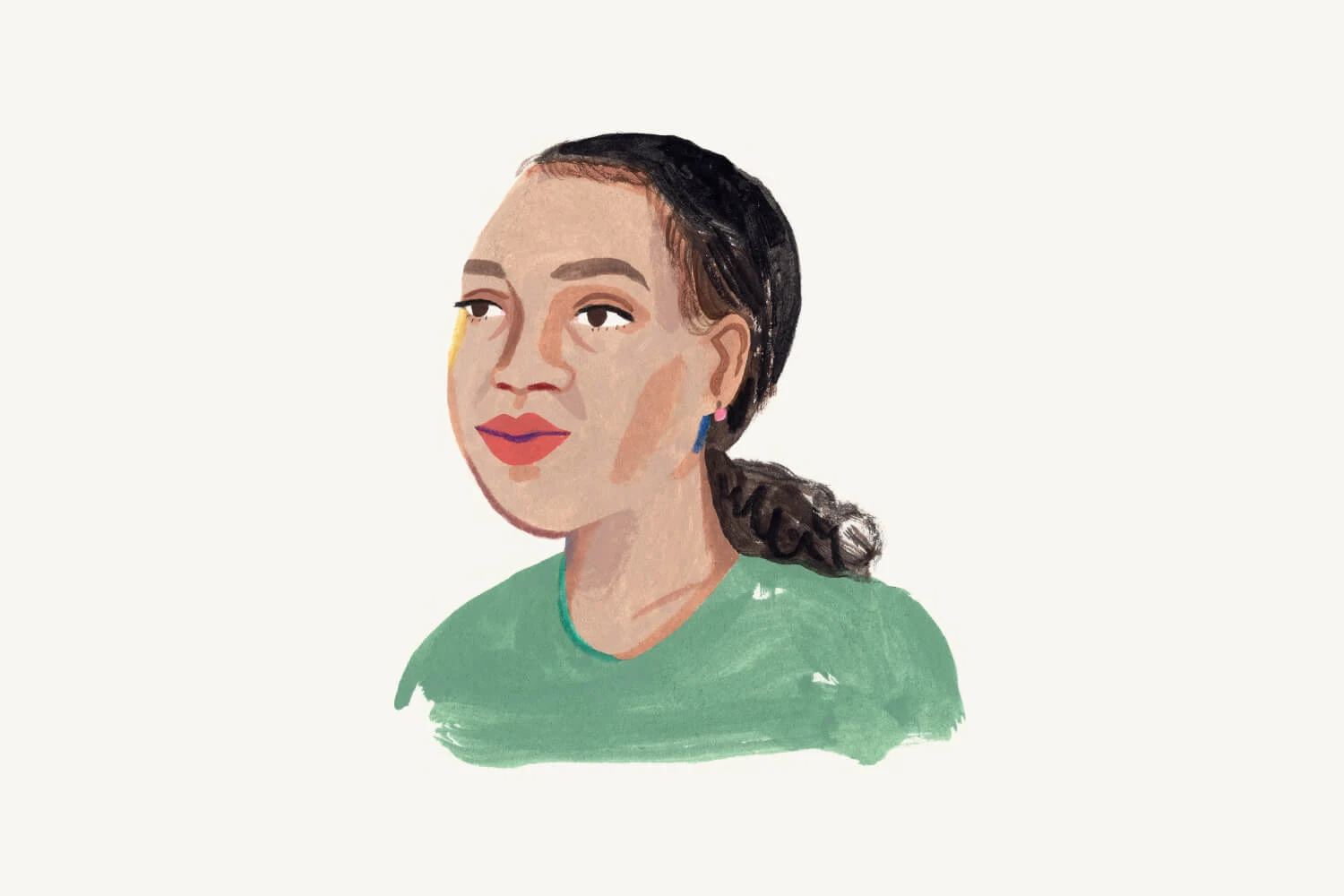
“Leslie, 35”:
I was not capable of functioning unless I was keeping myself in a constant state of crisis.
I think a lot about when I decided to finally go to therapy because on the iPhone, there are these “featured photos” on the home screen, and one of me from the first day of my honeymoon keeps popping up. I look like absolute shit. My skin looks dull and blemished, my eyes are exhausted, my hair is dull.
I look 10-15 years older than I am in this photo. It was right after my wedding! I should have been glowing or some shit. I was so severely depleted at this moment in time. I spent the summer that year feeling like shit and I think It really took hitting a wall like that to get me to make a change.
By late 2019 I was not doing well. I was rounding out my second full year freelancing, had gotten married, and was a complete mess. I was chronically overworking, and looking back it was pretty clear that I was not capable of functioning unless I was keeping myself in a constant state of crisis—be it with work instability, overworking, never taking time off.
I ruined my own wedding for myself—again by working too much, right up until the day before. Not resting. Not taking care of myself. I was fighting often with my family.
The other thing that put me over the edge on the tail of a summer of feeling like shit, was staring down yet another holiday season and knowing that a complete meltdown was on the way. I hadn’t had a single Christmas as an adult that didn’t result in an intense and days-long anxiety episode that I finally would emerge from sometime in the first week of January. Borrowed benzos and alcohol were not as helpful as I wished.
I didn’t like going to therapy much at first. I still don’t!
That said, over the course of two years I have done a lot of work with my therapist. My physical health has improved. My relationships with my family and my husband have improved. I had my first Christmas last year where I didn’t have a complete meltdown on Christmas Day. I almost enjoyed myself. I am effectively evaluating and dealing with a lot of trauma that I endured as a kid and young adult and have learned how to recognize how some of my habits that I thought were just my “personality” are actually shitty coping mechanisms that I simply do not need to utilize anymore.

“Sydney, 25”:
My girlfriend told me that I was hard to talk to.
I had been meaning to go to therapy at some point because I was experiencing some personality changes, mood swings, and issues with sleeping.
However, when my (now ex) girlfriend told me that I was hard to talk to, I felt a sense of urgency to do something about my own problems, as well as a need to address some issues in my relationship with a professional. I made an appointment with a therapist days after that conversation.

“Marie, 23”:
I didn’t deal with my mental health issues for a long time because I was busy taking on the role of the older sister and protector of my family.
Mental health and therapy are often not dealt with in families of color; these are dirty words that especially immigrant parents think are fake and don’t exist. Seeking help is frowned upon because mental wellness isn’t understood.
As the older child, I didn’t deal with my mental health issues for a long time because I was busy taking on the role of the older sister and protector of my family.
But once my younger brother started to cope with his own mental health issues, it became more apparent to my parents that this was a serious issue...and that mental health issues run in our family on both sides, with family members dealing with OCD, schizophrenia, and bipolar disorder.
It made them confront this issue, and even though they’re not fully enlightened, and things will never be “perfect”, it’s led to actual change within our family, and it’s been slightly easier to voice very valid concerns about all of our mental health journeys as a collective unit and as singular people.
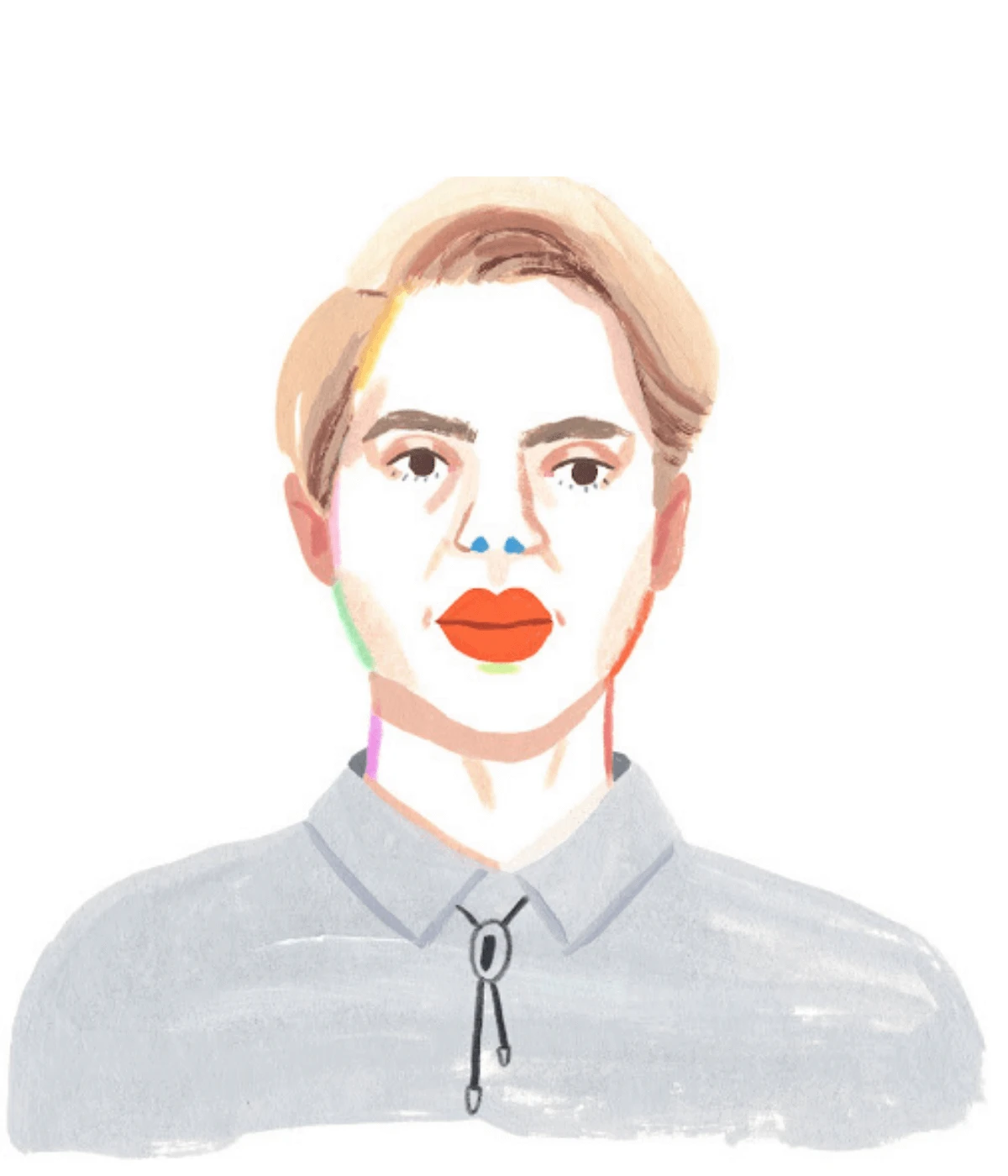
“Elizabeth, 33”:
My depression was finally gaining too much influence in my everyday life.
I had been in therapy when I was 13 for an eating disorder but I definitely only went because my parents made me. When I first decided to go back to therapy as an adult, it was because I was desperate to get out of a bad relationship I felt trapped in—but I didn’t click with the therapist and wound up stopping…
I decided to go back to therapy in earnest last year because my depression was finally gaining too much influence in my everyday life. And this time it was different because I was going in search of tools with which to deal with myself rather than with someone else or because someone else was telling me to. I think one day I just stopped thinking it was weak and realized how it is just helpful.
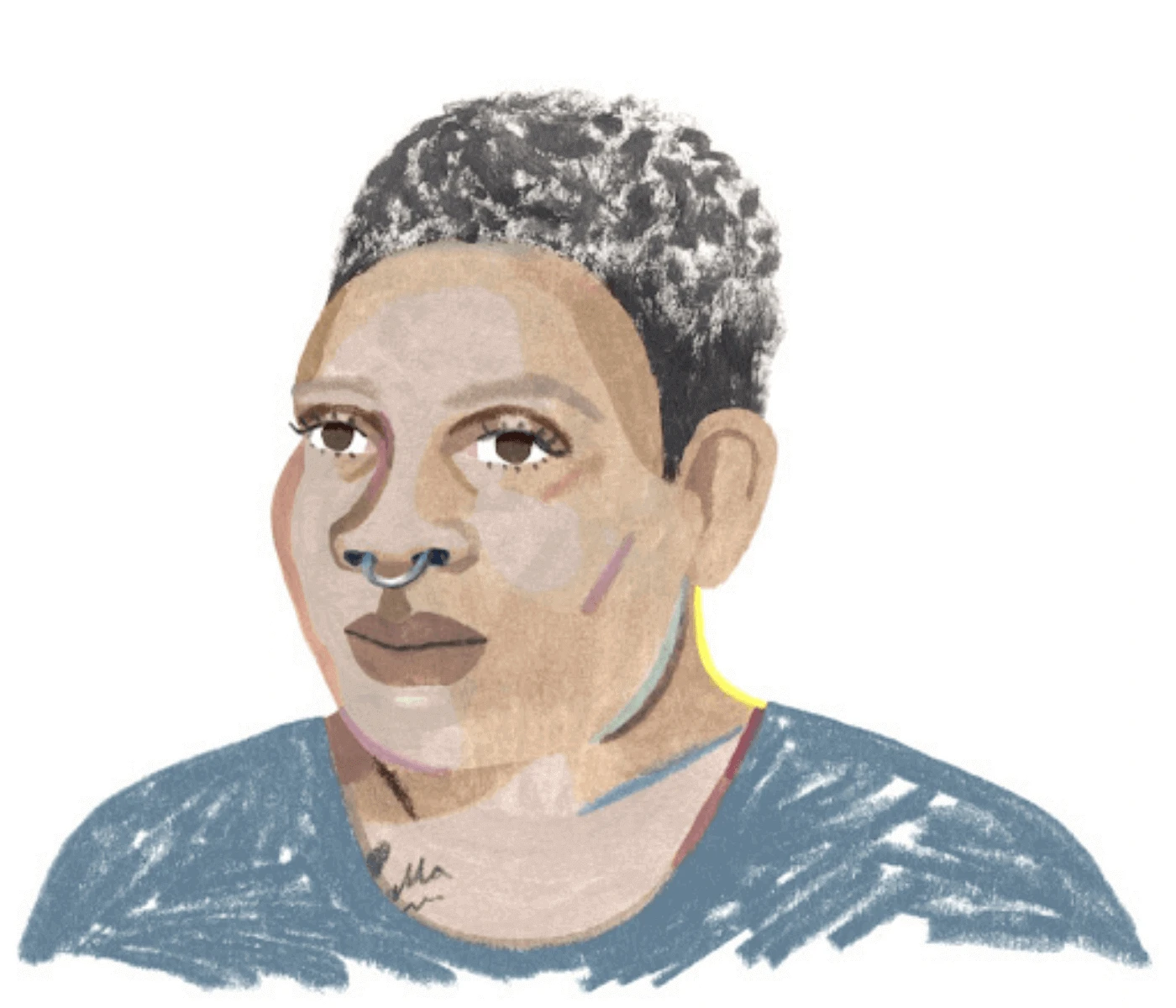
“Christine, 35”:
My tipping point was the pandemic—surprise, surprise.
I went to court appointed therapy as a kid. It helped a lot. It taught me to express myself in a healthy way, to process and to think before I speak.
I feel like I took everything I learned in those sessions when I was 10-12 and applied them to my teenage and later years so I didn't really feel like therapy past that was necessary. I had friends I could talk to, family I could bitch at, etc.
However, the pandemic took that away in a sense; now everyone was needing to lean on friends, to process, to bitch, to vent. Add that to virtual meeting fatigue and it felt like it was too much to ask my friends to hold that space for me anymore. It felt too burdensome. So I started looking outwards at people I could feel less burdensome to.
It took a long time to find someone who I felt at ease with because really what I want out of therapy is someone who I can speak to like a friend but our conversations won't feel like a strain on our friendship. Luckily I found it! 10/10 would recommend.

“Phillip, 34”:
Life was kicking my ass, so I went.
Both of my turning points are relationship-related. Things ended or I got dumped and finally hauled myself (back) to therapy. It might not be the healthiest pattern, but I guess it’s kinda like getting into fitness because you’ll die if you don’t get fit.
Life was kicking my ass, so I went. And it has always felt good to be in therapy, it’s just never felt great to be looking for a therapist, you know?

“Sebastian,” 40:
I felt completely paralyzed.
I felt unable to function or work and unmotivated to complete even normal everyday tasks—then I had a panic attack the night before I was supposed to go abroad on a work trip. I felt completely paralyzed and I realized I needed help.
No one but you can know what your tipping point is, what it is that will make you know you’re ready to find help. But whether it’s a sudden crisis or just a kind of curiosity, it’s important to acknowledge that feeling of wanting some support. Whenever you’re ready, Monarch is here.
